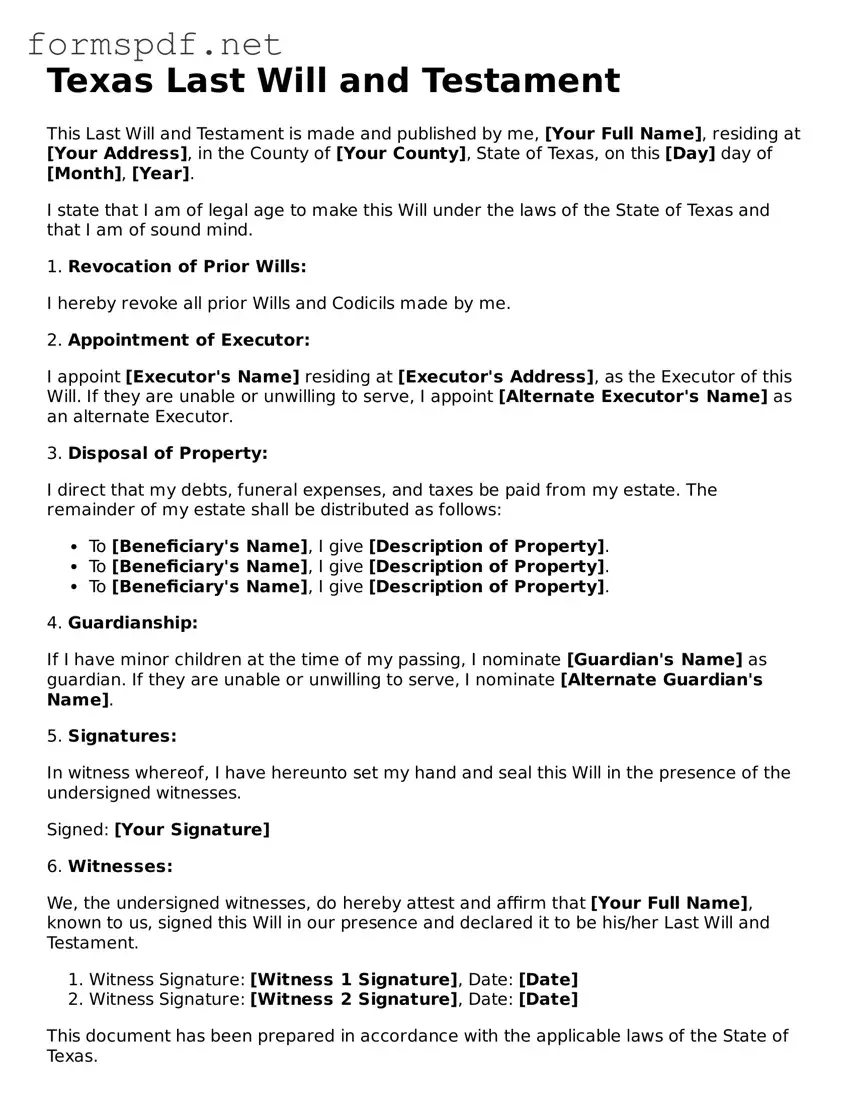Free Last Will and Testament Form for Texas
A Texas Last Will and Testament form is a legal document that outlines an individual's wishes regarding the distribution of their assets and the care of any dependents after their passing. This essential tool ensures that your intentions are honored and provides clarity for your loved ones during a difficult time. To begin securing your legacy, consider filling out the form by clicking the button below.
Launch Editor Now

Free Last Will and Testament Form for Texas
Launch Editor Now

Launch Editor Now
or
⇓ Last Will and Testament PDF
Don’t leave without finishing the form
Finish your Last Will and Testament online and download the final version.